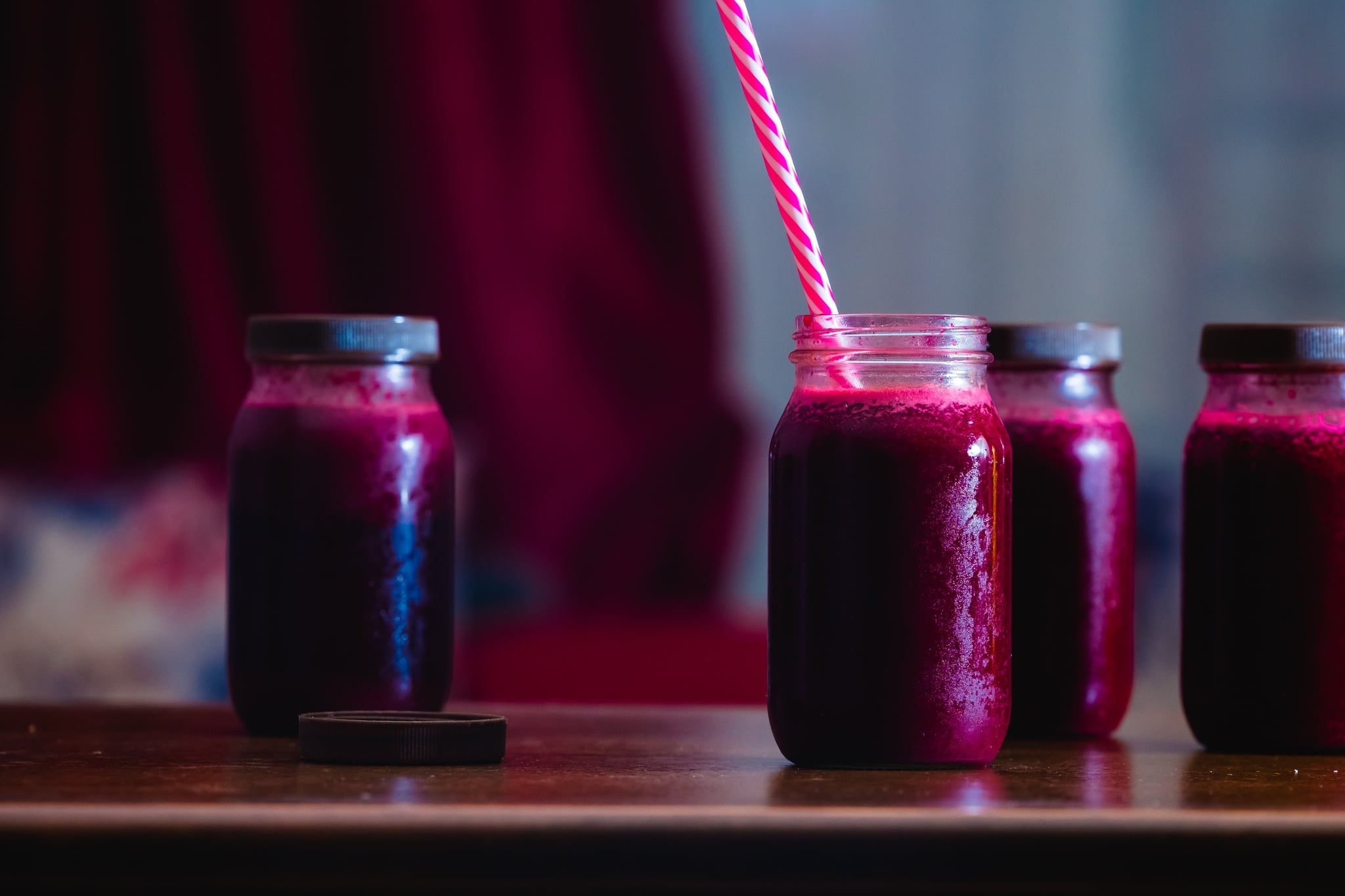
Let's get the weirdness out of the way. Yes, I know drinking beet juice [1] with the goal of running faster sounds really odd — especially when I think about it from the athlete/trainer perspective. One would typically consider following a strength-training program [2] or a running program [3] and more than likely incorporating speed work [4] into a training plan in order to run faster. I included all of those things, to a certain extent, into my training plan for the 2019 New York City Half Marathon, but I also tried one more thing to help me achieve my goal of running faster than 1:58:00 — beet juice.
Why Beet Juice?
Out of all the things one could consume to improve their athletic prowess, you're probably wondering why I chose to consume beet juice. Well, to be honest, I saw it on Instagram. I know, it also makes me laugh, but hear me out. I follow a lot of knowledgeable trainers on Instagram and had seen Joe Holder [5], a Nike trainer, talking about how beet juice could help improve long-distance runs. I never saved his Instagram Story explaining all the details, but here's the rundown on how beet juice may help you run faster.
I've got to get scientific for a bit, so bear with me. It starts with nitric oxide, a compound that's found naturally in vegetables such as beets. According to a 2013 study in the British Journal of Clinical Pharmacology, dietary nitrates have beneficial vascular effects like reducing blood pressure and enhancing exercise performance [6]. The dietary nitrates are vasodilators [7], which means they open up, or widen, your blood vessels, resulting in greater blood flow without your body having to work harder. Just what I want when competing. According to a 2017 review in Nutrients, "Beetroot juice increases levels of nitric oxide (NO), which serves multiple functions related to increased blood flow, gas exchange, mitochondrial biogeneisis and efficiency, and strengthening of muscle contractions [8]."
The same review also found that "supplementation with beetroot juice can improve cardiorespiratory endurance in athletes by increasing efficiency, which improves performance at various distances, increases time to exhaustion at submaximal intensities, and may improve the cardiorespiratory performance at an anaerobic threshold intensities and maximum oxygen uptake." Translation: it may make you a more efficient runner, it'll take you longer to fatigue, and it may improve your endurance, helping you run faster for longer periods of time. This means I didn't waste my money on all that beet juice.
My Beet Juice Plan of Attack
Now that we've got the science out of the way, it's time to get to the fun. Because I live in New York and I'm ballin' on a budget, I decided to consume beet juice once a day for a week leading up to race day. Instead of juicing at home, I saved myself lots of time and avoided having to clean up all the mess by going to my local bodega and ordering beet juice. Fun fact: whether you're going to a bodega or juicing at home, you'll want to incorporate other vegetables and fruits, as it takes a lot of beets to make 16 ounces of juice.
I didn't suddenly feel like I was going to crush my race or that my endurance improved dramatically. In fact, I felt the exact opposite. My motivation to train was minimal, I was tired, and three days before the race, I strained my quad and was having hip issues. "So much for running fast," I thought. I didn't drink any juice the day before the race; I read it makes some people have a tremendous urge to poop on race day, and I didn't want anything slowing me down.
The Results
Race day came, and I flew through the first six miles of the half-marathon with splits of 8:25, 7:56, 7:52, 7:49, 8:44 (damn the Manhattan Bridge), and 8:06. I was surprised every time the automated voice on the Nike Running app told me my mile time because I had never run that fast. I was somewhat nervous that I would burn out since my splits from the year prior were in the 8:35-, 8:40-, and even the 9:00-minute range. Using my sprinter experience, I knew I wanted to set the pace from the jump and just deal with it. I knew I wasn't going to be able to run negative splits on dead legs, so I went out fast. Fast-forward 13.1 miles and one hour and 53 minutes later, and I had accomplished my goal: running faster than I did the year prior.
Did the beet juice have a part to play in this? Perhaps; more research in standardized conditions needs to be done. But I'll tell you this: my training was lackluster, I maybe did one "long run" (six miles max) a week, and I focussed primarily on strength training. Either way, I got more vegetables into my system during this experiment, and whether it was the beet juice that improved my time or just pure competitiveness and will, I met my goal. PS — I'm not a doctor or a registered dietitian, so definitely speak to your doctor to make sure it's OK for you to consume beet juice.

